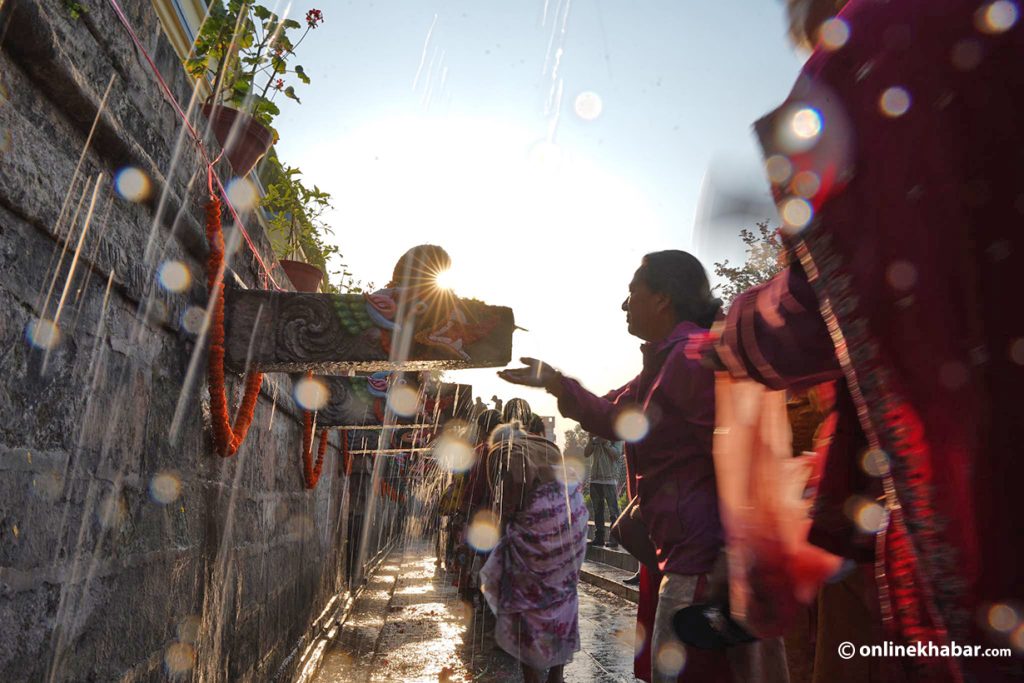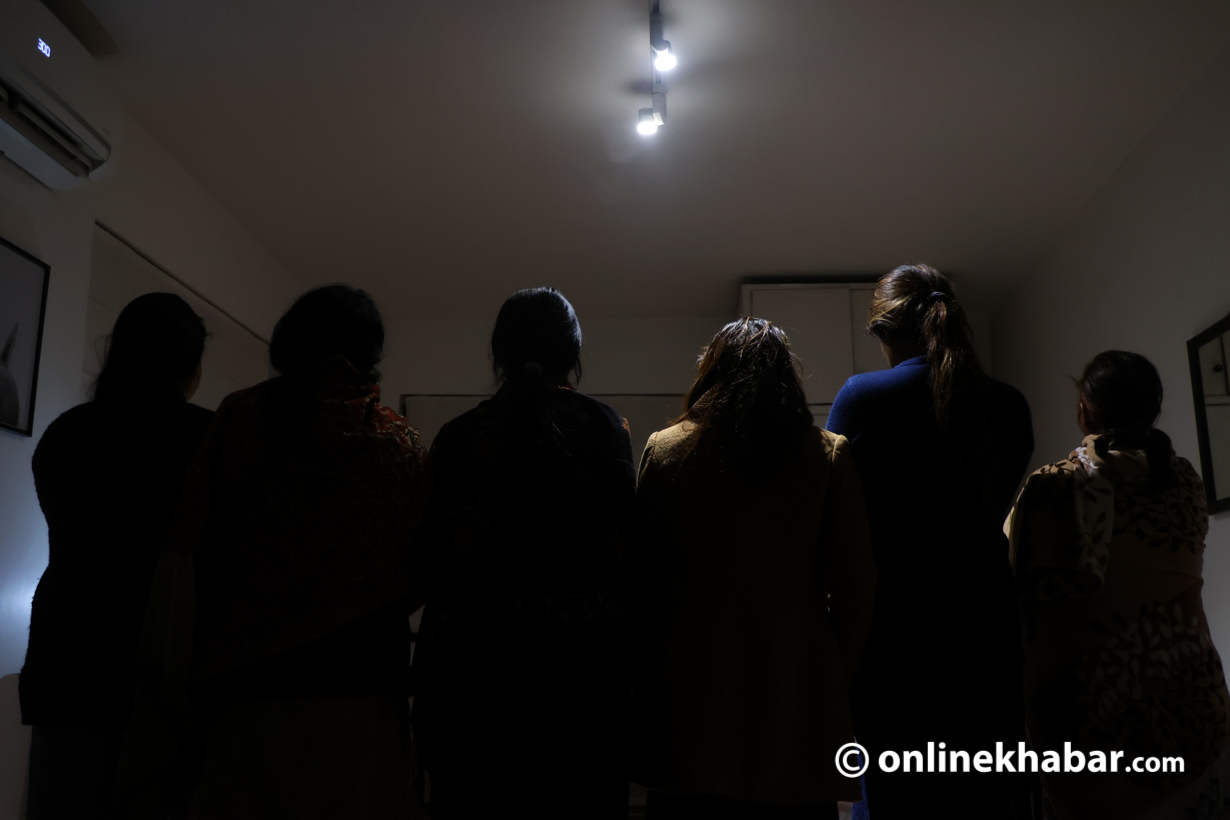Nepali women reaching the finals of the SAFF championship has made the front pages of most newspapers along with news of RJPN and FSFN discussing a merger.
Here is a summary of important, ignored and interesting stories from the front pages of national broadsheets:
Important

RJPN and FSFN discuss merger
Rajdhani and Republica report that Rastriya Janata Party Nepal (RJPN) has formed a five-member team to hold merger talks with the Federal Socialist Party Nepal (FSFN), paving the way for formal dialogue in the merger process that was in limbo since a year and a half.
A week after a closed-door meeting held at Hyatt Regency entrusted presidium member Rajendra Mahato to start a formal dialogue, RJPN on March 15 gave complete shape to the talk team by appointing Brishesh Chandra Lal, Ramesh Yadav, Sunil Rohit and Keshav Jha as its members. One more member is likely to be added in the talk team soon.
RJPN leaders said that the talk team will now start a dialogue with FSFN, besides exploring possibilities of a merger with other regional parties.
Two vice chancellors at BPKIHS
Republica and The Himalayan Times report that after the Supreme Court (SC) on Sunday issued an interim order to the government not to sack Prof Dr Raj Kumar Rauniyar from the post of vice-chancellor of the BP Koirala Institute of Health Sciences (BPKIHS), the institute now has two vice chancellors.
On Tuesday, BPKIHS Rector Dr Guru Khanal, was named as acting vice chancellor by the government. On the other hand, Khanal stressed that the government has appointed him as acting VC and he would shoulder the responsibility with due seriousness. He said he has no official information on Rauniyar’s return.
Ignored

Inland waterways to become part of Nepal-India trade and transit treaties
The Kathmandu Post reports that India has agreed to incorporate Nepal’s proposal to extend inland waterway facilities up to its nearest navigation points in the bilateral trade and transit treaties for third country trade via India.
An understanding to this effect was made during a joint meeting of senior officials from Nepal and India, which concluded on Tuesday in New Delhi. Officials from both countries held the meeting to review and revisit the bilateral transit and trade treaties.
Rabi Shankar Saiju, joint-secretary at the Ministry of Commence, and Bhupinder Singh Bhalla, joint-secretary at the Department of Commerce, Ministry of Commerce and Industry of Government of India, signed an agreement. Waterways transit facilities are also expected to reduce the import and export expenditures significantly.
During the meeting in New Delhi, the Nepali side had proposed using two Indian transit points for inland water navigation: Sahibgunj (Jharkhand) and Kalughat (Bihar) via Haldia port up to Nepali border from Koshi and Narayani (Gandak in India) rivers respectively.
TU VC giving refuge to frauds
Kantipur reports that vice chancellor at Tribhuvan University, Tirtha Raj Khaniya has been giving refuge to medical colleges taking excess fees from its students. Even though students and their guardians have been filing complaints against medical colleges, Khaniya has been turning a blind eye to those complaints. Sources say that Khaniya, wanting to protect medical colleges, has been putting the report submitted by the Complaints and Investigation committee in limbo. Staff at TU say that they have seen no intention from Khaniya to take action against such colleges.
Rohingiyas to be sent to third country
Rajdhani reports that the government is planning to send back all refugees illegally living in Nepal. The Home Ministry has sent a proposal to the Cabinet to send the refugees who came to Nepal via India to a third country. According to the ministry’s spokesperson, Ram Krishna Subedi 56 Rohingiyas were sent to a third country in the past year. Subedi also added that visa provisions for refugees were also going to be discussed.
Interesting

Nepali bureaucrats asked CMC for cut
The Kathmandu Post reports that rampant corruption, regular demands for commissions by government officials, and labyrinthine bureaucratic hassles forced the Italian contractor to abandon the Melamchi Water Supply Project, throwing the national pride project that is close to completion into uncertainty.
Two Italian officials told the paper that that Nepali government officials sought commissions on a regular basis during their last three years working on the project. According to two top CMC officials, the same government officials who asked for commissions with the contractor were the ones actively involved in blocking the payment recommended by the independent third-party committee.
Both Italian officials named two senior Nepali bureaucrats—Gajendra Kumar Thakur, a former secretary at the Water Supply Ministry, and Surya Raj Kadel, executive director of the Melamchi Water Supply Development Board—as the officials who demanded a cut in the amount approved by the Dispute Adjudication Board.
Thakur and Kadel, according to the paper, told the CMC manager for the Melamchi project that they wanted a discount of Rs 62 million on the payment and a cut of 3 percent on the remaining Rs 300 million. Both Thakur and Kadel denied the allegations.
Govt using carrot and stick to deal with Chand and his cadres
The Himalayan Times reports that the government has decided to adopt a carrot and stick approach to bring cadres and leaders of the Netra Bikram Chand-led Communist Party of Nepal to mainstream politics. To begin with, families of cadres and leaders of CPN will not have to bear the brunt of the actions of their kin, as was the case during the Maoist insurgency. Policy makers in the government are of the opinion that torturing families of Maoists during the 10-year People’s War had led to an unprecedented rise in the insurgency.
According to Indrajit Rai, police will only target cadres and leaders of the Chand-led outfit. He added that police would first try to convince them to abandon violence and will keep them in detention centres to convince them. Rai said that if even though the government approach was soft if CPN cadres do not give up violence, they will be dealt with as per the law.






















